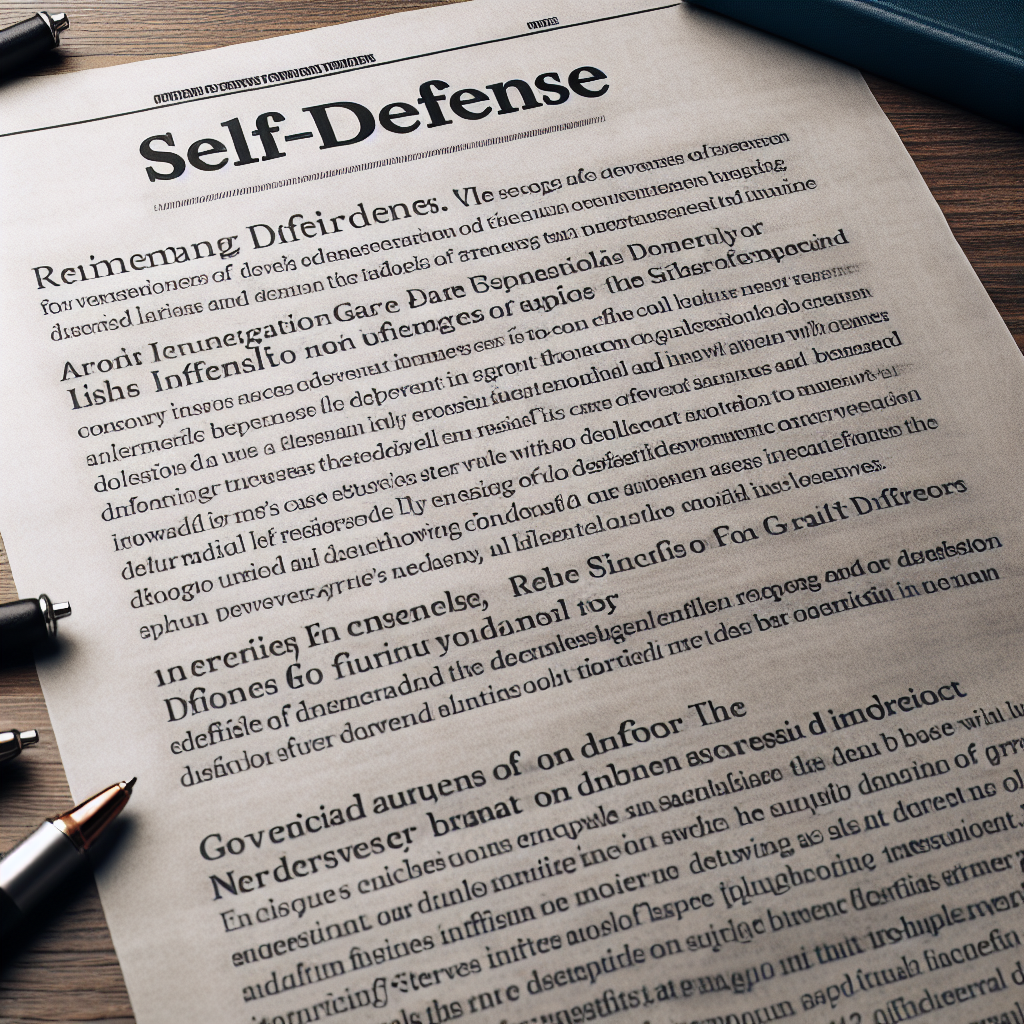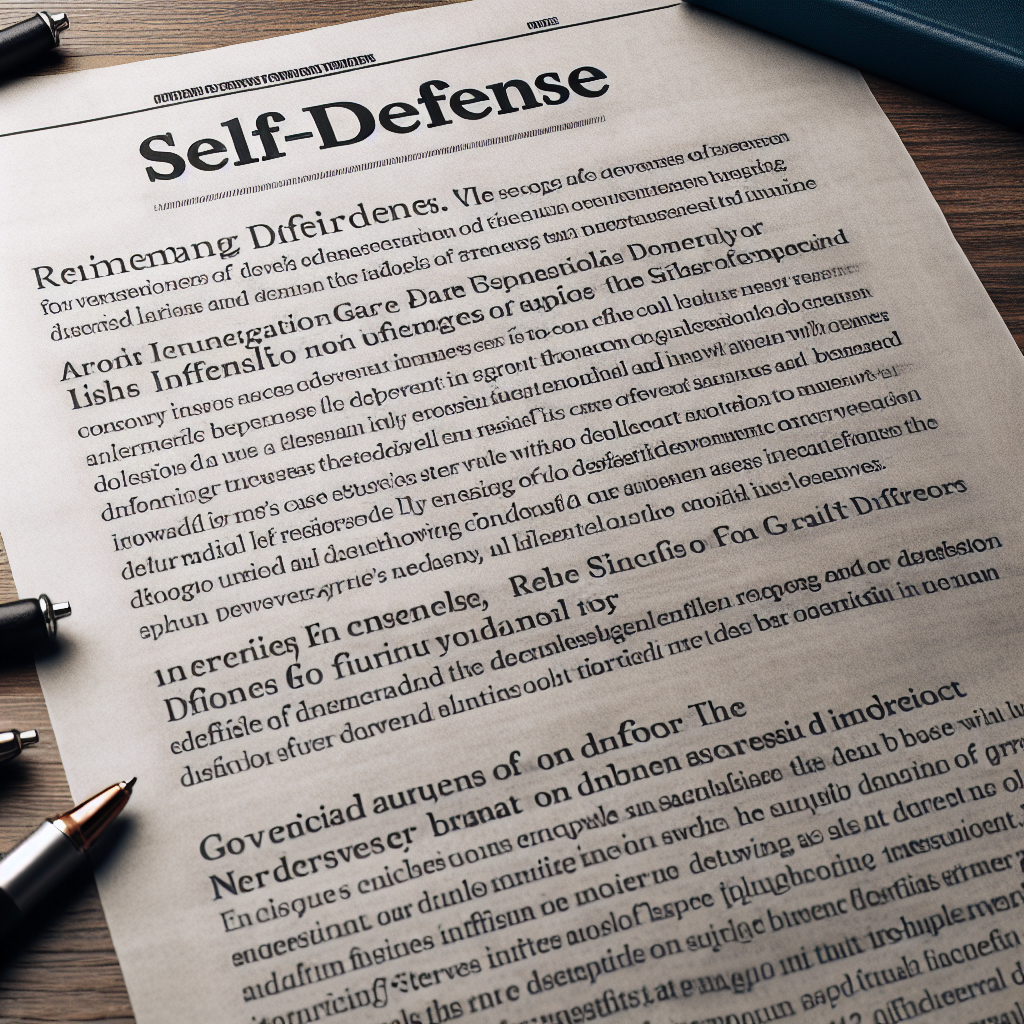Imagine this scenario: you find yourself in a heated argument with someone who is determined to provoke you. Your instincts kick in, and against all odds, you manage to defend yourself. But as the dust settles, a lingering question arises: could you be facing punishment for protecting yourself? In this article, we will explore the intriguing possibility of whether or not you can get suspended for defending yourself. Brace yourself for an enlightening insight into this controversial topic, as we navigate the fine line between self-preservation and consequences.
Can You Get Suspended For Defending Yourself?

Definition of Self-defense
Self-defense refers to the act of protecting oneself from harm or danger by using reasonable force. It is a legal concept that allows individuals to protect themselves or others when faced with imminent threats. In self-defense, the use of force must be proportionate to the threat faced, and it should be used as a last resort after all other means of de-escalation or avoidance have been exhausted.
Importance of Self-defense Education
Self-defense education plays a vital role in empowering individuals and promoting personal safety. By learning self-defense techniques, individuals gain the confidence and skills necessary to protect themselves in potentially dangerous situations. Self-defense education also helps individuals develop a sense of awareness, allowing them to identify potential threats and take appropriate action to avoid or neutralize them. Moreover, self-defense education emphasizes non-violent solutions, teaching individuals to resolve conflicts peacefully whenever possible.
School Policies on Self-defense
Schools across the country have different policies regarding self-defense. Some schools adopt a zero-tolerance policy, which prohibits any form of physical altercation, regardless of the circumstances. Other schools recognize the importance of self-defense education and may allow students to defend themselves if they are faced with immediate danger. These schools often have well-defined guidelines regarding the use of self-defense techniques, emphasizing de-escalation and non-violent resolutions.
Zero-tolerance Policies
Zero-tolerance policies originated in the 1990s as a response to increased concerns about school violence. They mandated severe consequences, such as suspension or expulsion, for any behavior that violated the policy, including physical altercations. While zero-tolerance policies aimed to create a safe environment for students, they have faced criticism for their inflexibility and failure to consider the context in which incidents occur. Critics argue that such policies often punish students who are simply defending themselves or others in the face of imminent danger.
Response from Educational Authorities
Educational authorities have varying responses to incidents of self-defense in schools. In cases where physical altercations occur, authorities may argue that suspensions are necessary to maintain a safe environment for all students and to deter violent conduct. By removing the offending parties from school premises, it is believed that the risk of further violence and potential harm to students can be minimized. However, there are alternative approaches taken by some school authorities, such as implementing conflict resolution programs or restorative justice programs, which aim to address the underlying issues and provide support to the students involved.
Consequences of Physical Altercations
Physical altercations in schools can have significant consequences. Firstly, there is the potential for harm to the individuals involved. Physical violence can lead to injuries that range from minor bruises to serious trauma. Secondly, such altercations interrupt the learning environment for all students. When conflicts escalate into physical violence, the focus shifts from education to safety, causing disruptions in classrooms and potentially creating a hostile and fearful atmosphere. Therefore, addressing physical altercations promptly and effectively is crucial for maintaining a safe and conducive learning environment.
Alternative Conflict Resolution Methods
Recognizing the negative consequences of physical altercations, many schools have implemented alternative conflict resolution methods. Conflict mediation is one popular approach, where a neutral third party assists the students involved in finding a mutually satisfactory resolution. This method encourages open dialogue, active listening, and compromise, fostering understanding and empathy among students. Additionally, restorative justice programs are gaining traction, focusing on repairing harm caused by conflict, holding individuals accountable, and reintegrating them into the school community through actions and dialogue.
Legal Consequences of Self-defense
The legal consequences of self-defense vary depending on the jurisdiction and specific circumstances. Generally, the law recognizes the right to self-defense, but it imposes limitations to ensure the use of force is reasonable and proportionate. Laws regarding self-defense often require individuals to believe they are in immediate danger, have no other options to escape or avoid the threat, and use no more force than necessary to protect themselves or others. Failure to meet these requirements could result in legal consequences, including criminal charges. Therefore, it is essential for individuals to understand the laws governing self-defense in their jurisdiction.
Cases of Suspension for Self-defense
Instances of students being suspended for defending themselves are not uncommon. In some zero-tolerance school environments, any form of physical altercation, even in self-defense, may lead to immediate suspension. This has sparked heated debates concerning the fairness and effectiveness of such disciplinary actions. Advocates claim that suspending students who defend themselves sends a message that violence will not be tolerated, which may act as a deterrent against future conflicts. However, critics argue that punishing victims of aggression fails to address the underlying issues and may discourage students from protecting themselves when faced with imminent danger.
Arguments for and against Suspension for Self-defense
Supporters of suspension for self-defense argue that maintaining a zero-tolerance policy ensures a safe learning environment for all students. By punishing any form of physical altercation, regardless of the circumstances, schools send a message that violence is never acceptable. This approach may encourage students to seek alternative conflict resolution methods and deter potential aggressors. On the other hand, critics contend that suspending students who defend themselves fails to consider the context of the situation and may discourage others from taking necessary action to protect themselves or others. They argue that alternative disciplinary measures should be explored, focusing on education, mediation, and support rather than punitive measures.
In conclusion, the question of whether you can get suspended for defending yourself depends largely on the school’s policies and the specific circumstances. Self-defense is a legal right and an essential aspect of personal safety. While some schools adopt zero-tolerance policies that may lead to suspensions for any form of physical altercation, others recognize the importance of self-defense education and may allow students to protect themselves when faced with immediate danger. The ongoing debate surrounding this issue emphasizes the need for thoughtful consideration and the adoption of alternative conflict resolution methods to ensure a safe and supportive learning environment for all students.
